Horse Trading in New Hampshire 1824
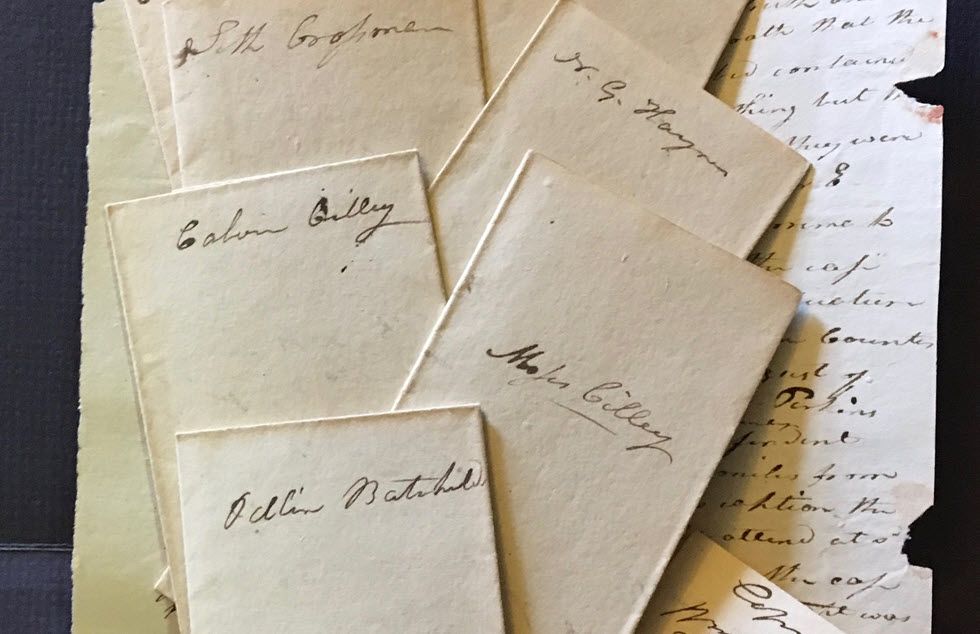
A sealed packet of depositions taken at Andover, New Hampshire July 17, 1824, unfolded one of those narratives that was differently ‘colored’ for each correspondent. (Illustrations 1 and 2)
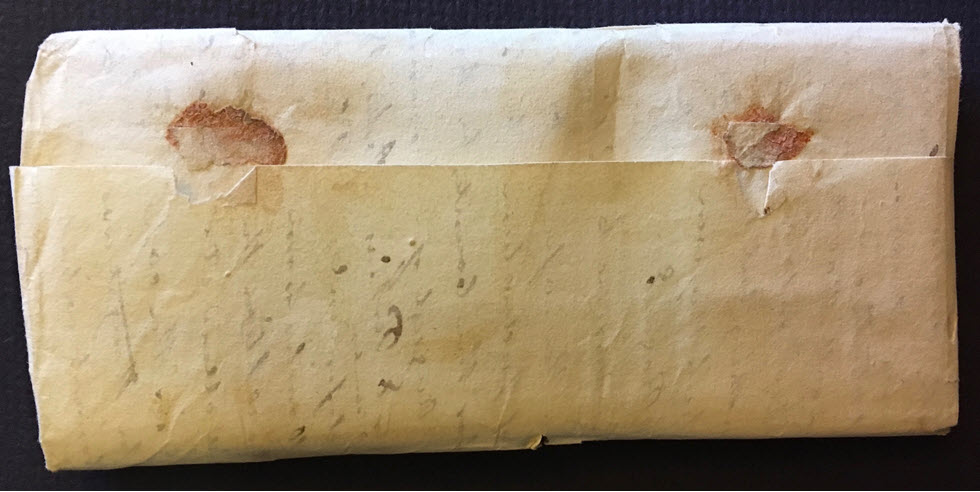
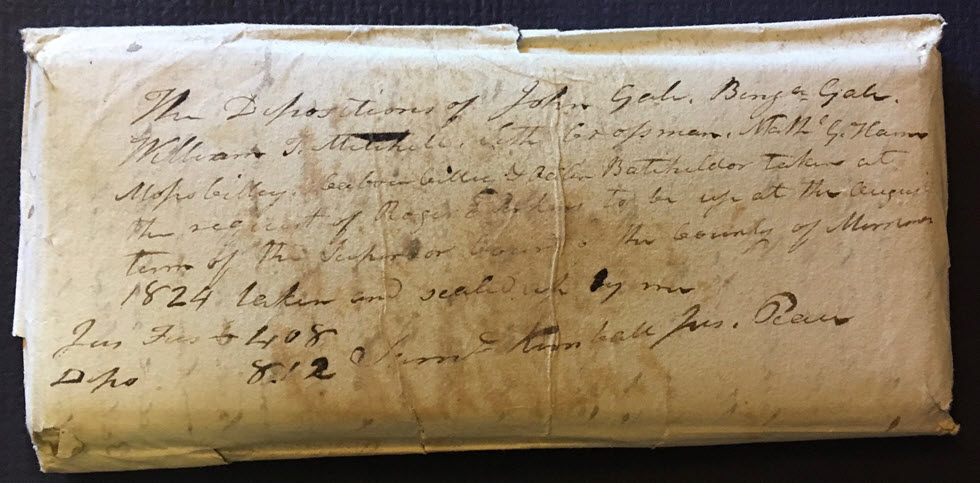
The Justice of the Peace, Samuel Kimball, had subpoenaed eight men to appear in Andover – all living more than ten miles from Concord, the Merrimack county seat, where the trial was to be held the next month. The defendant, Joseph C. Thompson, was also present at the depositions. (Illustration 3)
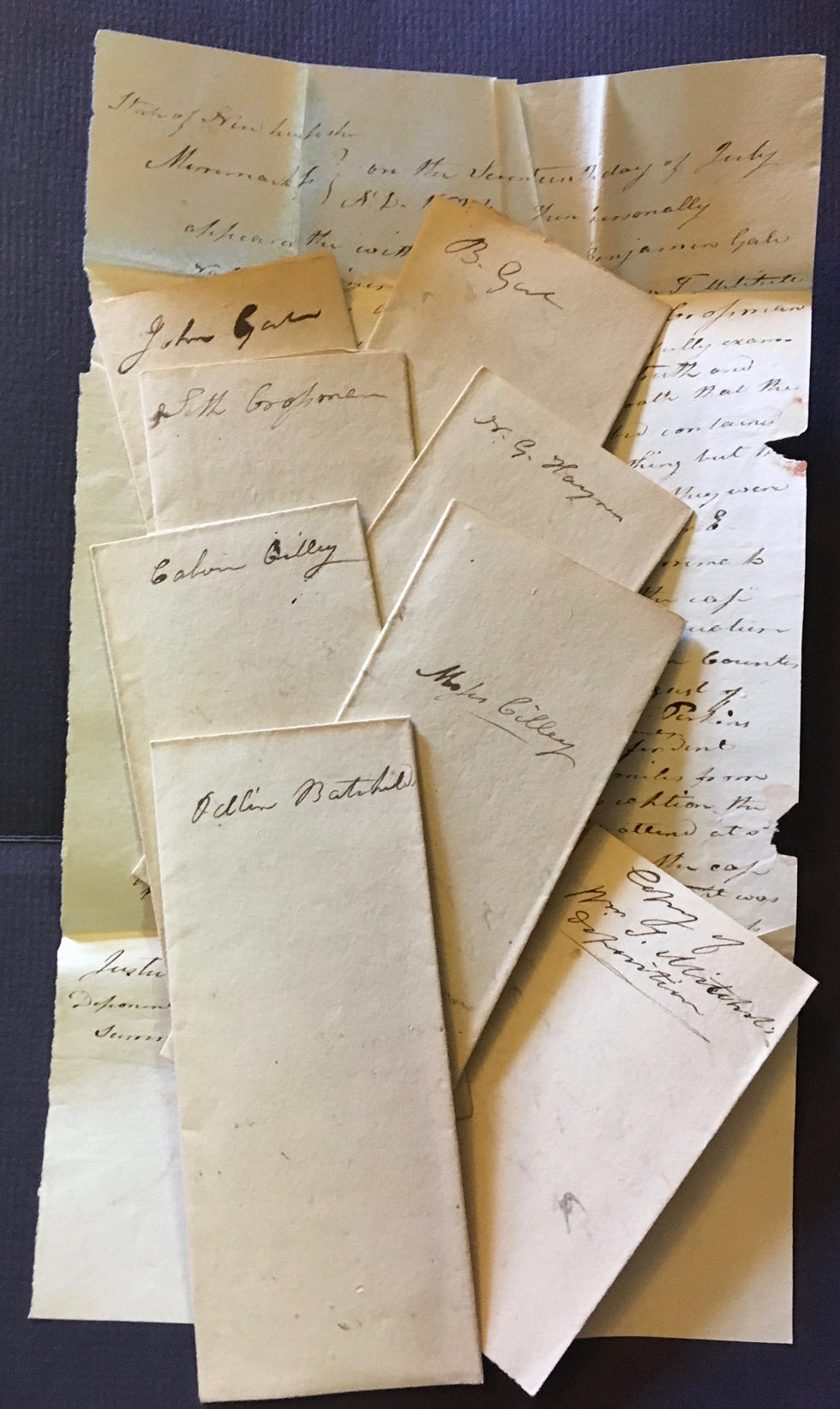
Though the charge isn’t revealed, it is clear that the plaintiff, Roger E. Perkins, believed that the defendant had sold a horse of his too cheaply.
The eight men all agreed that the sale had been in the summer (most said August) 1823. Six had been at the auction called by Joseph C. Thompson, and the same six agreed that a colt belonging to the plaintiff had been sold to Benjamin Thompson for $49 (one said “a little short of fifty dollars”).
Five of the witnesses said that the auctioneer arranged for his father to put in the winning bid – William Mitchell, a young boy who had caught Perkins’ colt to bring him in to auction, had even been sent for the father to instruct him to bid. All agreed that the son promised to buy the colt after the sale, if his father was “sick” of the “bargain.” The consensus was that the colt was worth more, but not that Joseph Thompson acted improperly. Seth Crossman observed that he had sold property as a Deputy Sheriff and that Thompson had kept the bidding going longer than he would have. Nathaniel Haines believed the colt was worth $100, Calvin Cilley guessed $80.
Odlin Batchelder swore that it took 45 minutes to sell the colt, and that to get to the final bid from $38 took from 10 to 15 minutes. He added that a hail storm occurred after the $38 mark. His testimony was the only one questioned by the defendant – who asked that the J.P. add the remark that he thought Batchelder “was too much intoxicated” to be a reliable witness. (Illustration 4)
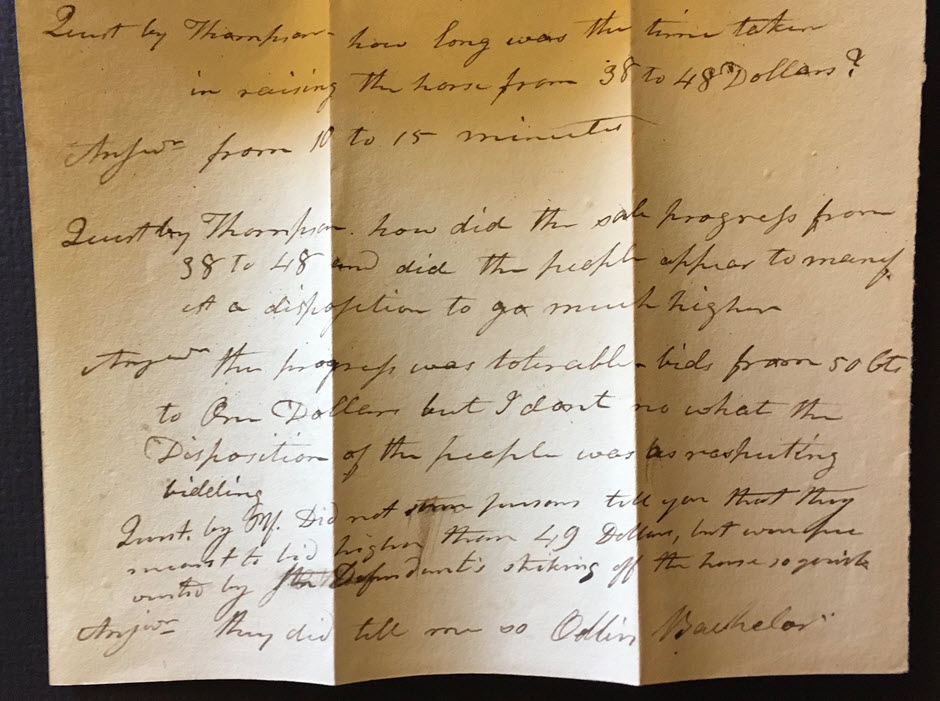
John Gale revealed a complication: in 1822 Thompson had had instructions to attach some of Perkins property to satisfy a claim of a Mr. Stinson, and Gale was privy to a conversation where Perkins asked for more time to get advice from his attorney. Then, in the summer of 1823, Perkins’ colts escaped and Gale rounded them up into his pasture. Thompson was afraid that this was a ploy to put these assets out of the county. Gale testified that that was unlikely. Moses Cilley testified that he was instructed by Thompson to find where Perkins’ colts had been pastured, round them up, and take them to Joseph’s brother Herod Thompson’s stable. And then the auction.
Looking to outside sources reveals some of the role of taverns in these men’s lives. The depositions were taken in Andover at a tavern owned by the J.P., Samuel Kimball. The critical auction was held at the Auburn tavern owned by the defendant. Two of the witnesses, Seth Crossman and Nathaniel Haines, owned taverns in the Andover area – John Gale’s testimony was about events at the Crossman tavern. The plaintiff, Roger Perkins, owned the Babson tavern in Hopkinton (about 25 miles from Andover and closer to Concord), run by his brother Bimsley Perkins.
Was $49 for an (apparently) untrained colt a bargain? $49 in 1824 is about $1500 in today’s dollars. And, today, in upstate New York, I would have my choice of several thoroughbred, fully trained yet young, horses for that price. In 1824, $49 was the average annual wage for a domestic servant in New England; or would have bought passage on a ship to England.
Clearly, all parties involved in this court case believed the colt to be worthy. You be a judge: would you award damages to Perkins?
